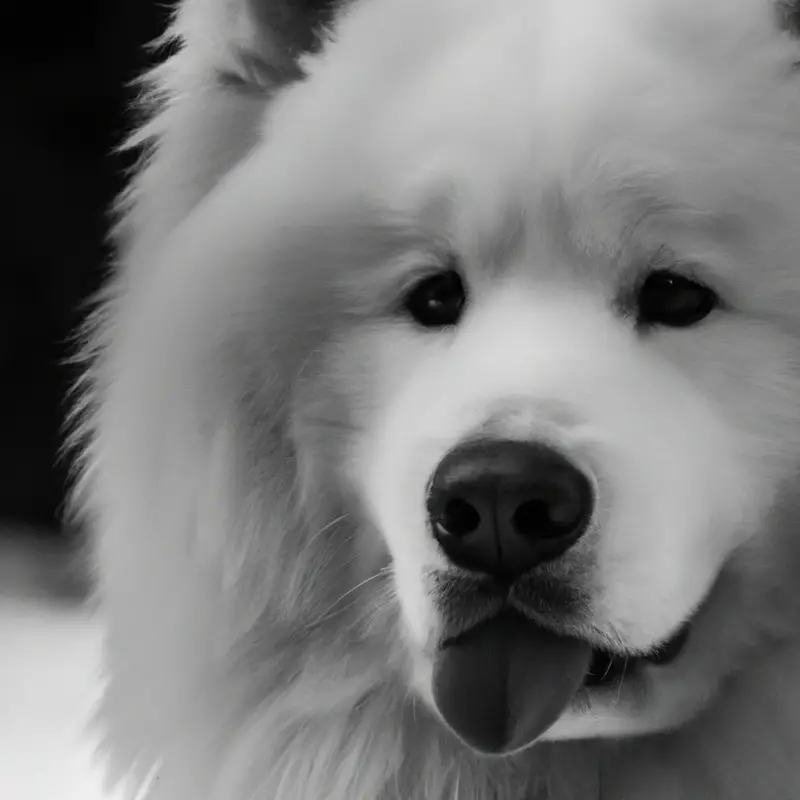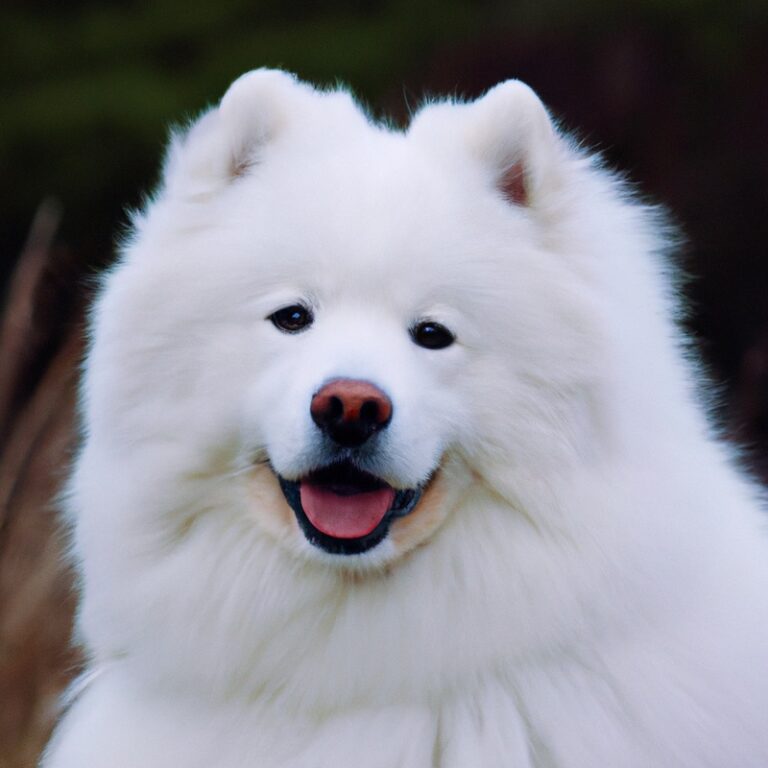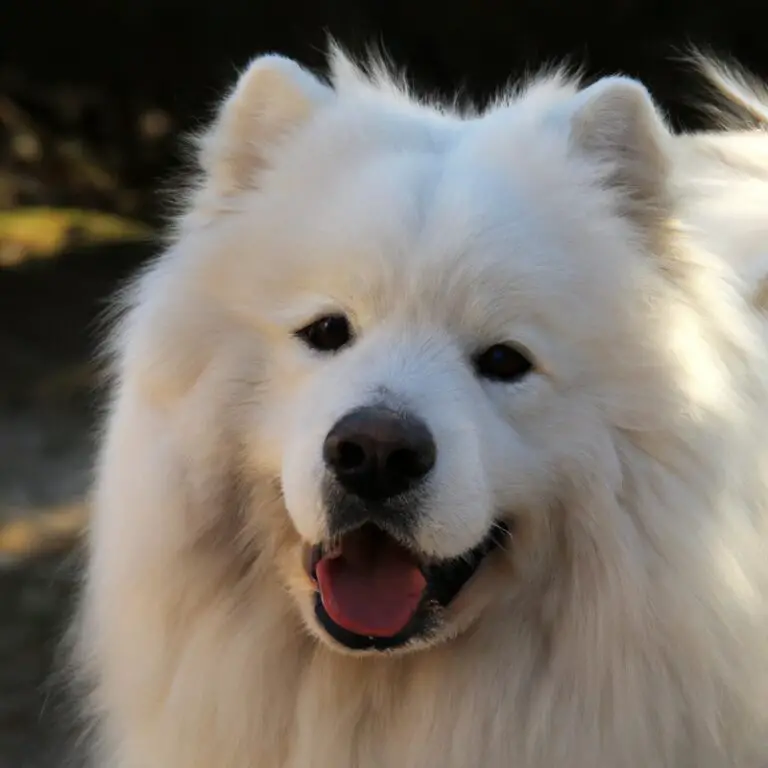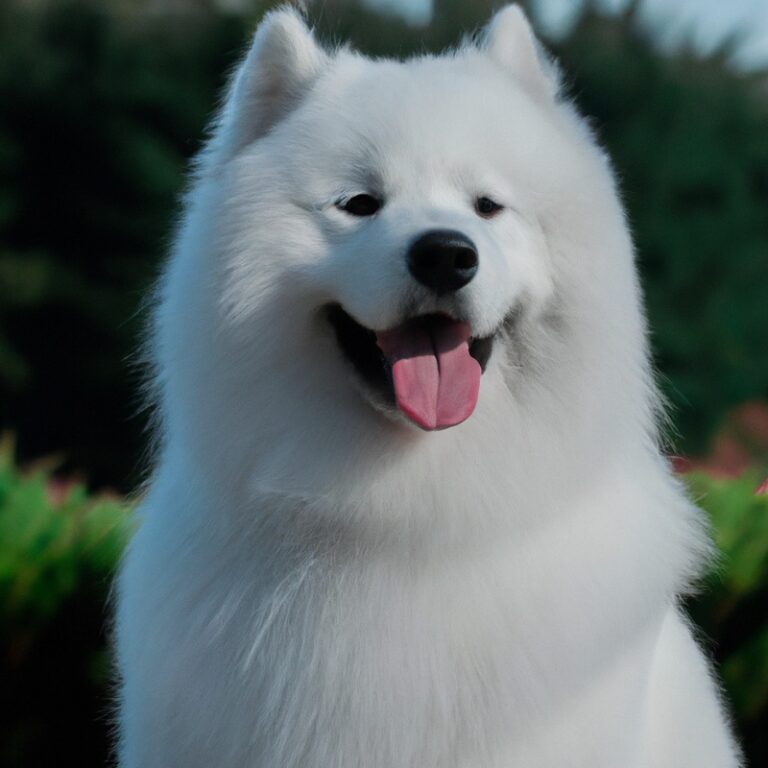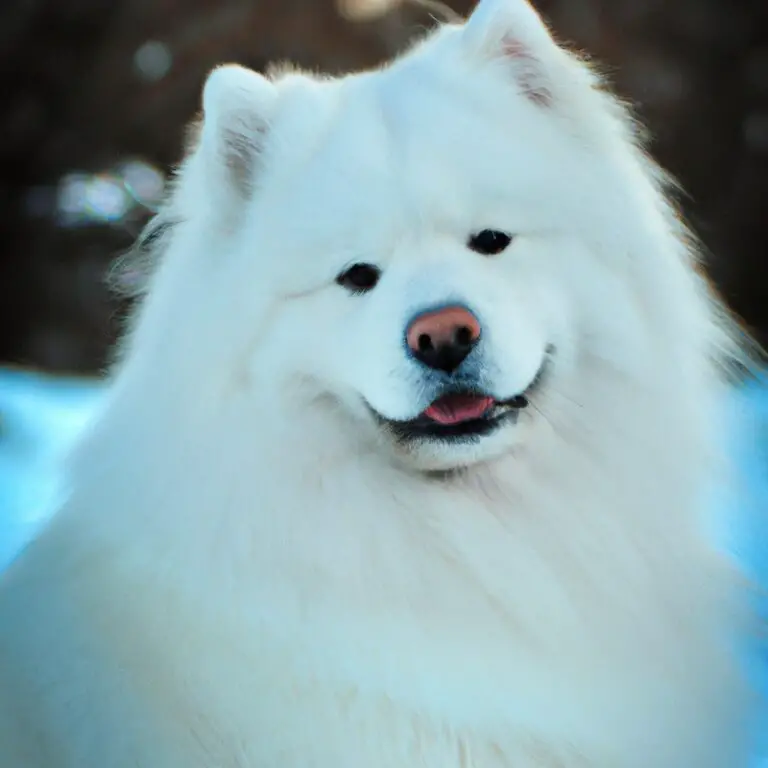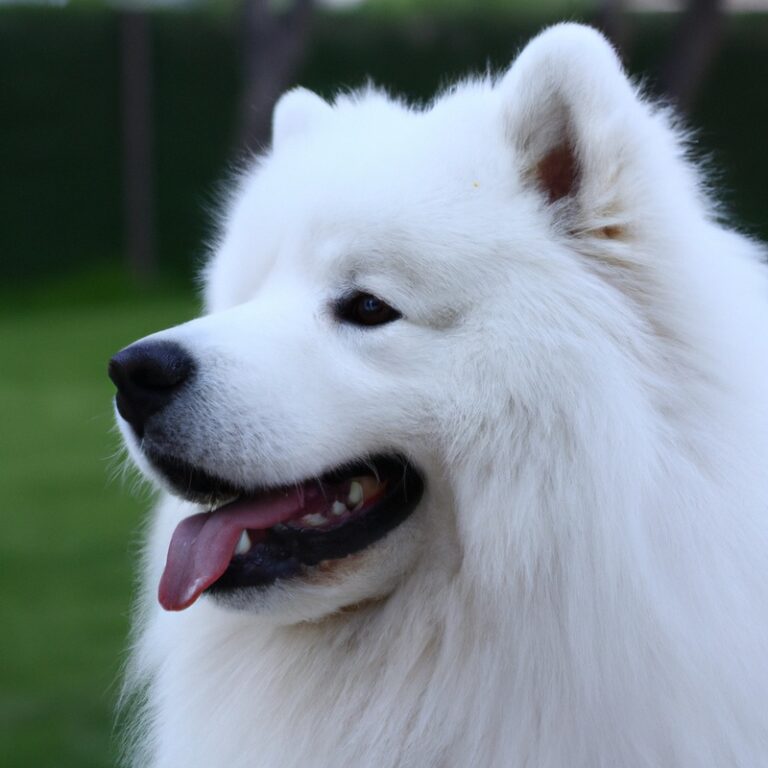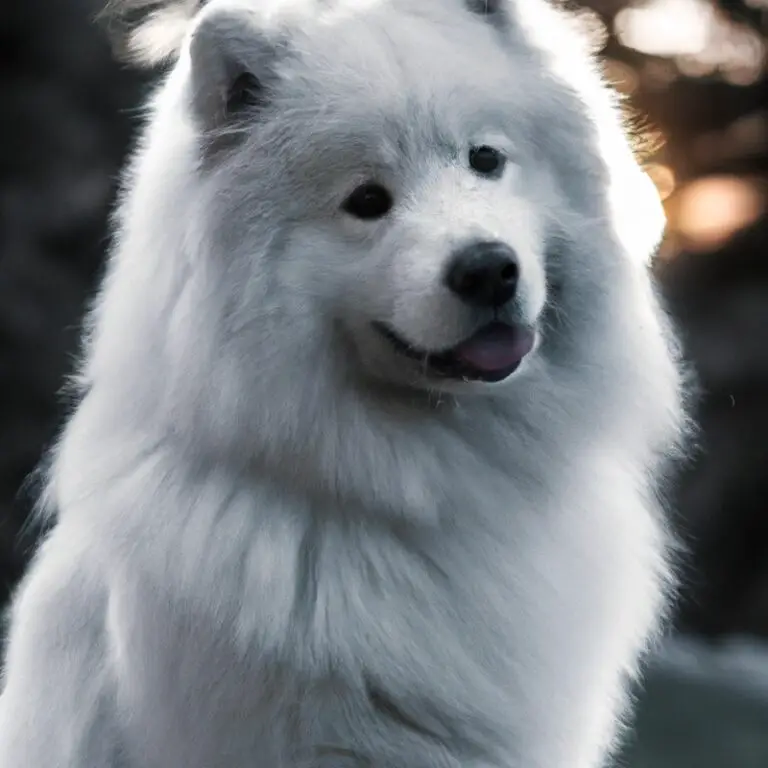What Are The Key Characteristics Of a Samoyed?
Key Takeaways:
- Samoyeds are known for their friendly and gentle nature.
- They have a thick, double coat that requires regular grooming.
- Samoyeds are highly intelligent and require mental stimulation and training.
- They are social dogs that thrive on human companionship and can become anxious when left alone for long periods.
Are you curious about the key characteristics of a Samoyed? Well, you’ve come to the right place! As an expert on this delightful breed, I’m here to give you a sneak peek into the wonderful world of Samoyeds.
With their striking physical attributes, friendly and gentle nature, and unique grooming needs, Samoyeds are truly one-of-a-kind dogs.
In this article, we’ll explore their size, coat variations, facial features, and more. We’ll also delve into their temperament, training requirements, health concerns, and whether they make great family pets.
So, let’s dive right in and discover what makes Samoyeds so special!
| Characteristics | Description |
| Origin | The Samoyed breed originated from Siberia and was used for herding reindeer, pulling sledges, and as a companion dog. |
| Size | Samoyeds are medium to large-sized dogs. Males typically weigh between 45-65 pounds (20-30 kg) and stand around 21-24 inches (53-61 cm) tall at the shoulder. Females are slightly smaller, weighing 35-50 pounds (16-23 kg) and standing 19-21 inches (48-53 cm) tall. |
| Appearance | Samoyeds have a distinct, fluffy white double coat that helps protect them from extreme cold temperatures. They have dark, almond-shaped eyes, erect ears, and a friendly smile. |
| Temperament | Samoyeds are known for their friendly, gentle, and outgoing nature. They are highly sociable dogs that enjoy being around their family members and can get along well with children and other pets. |
| Exercise Needs | Samoyeds are an active breed that requires regular exercise to keep them mentally and physically stimulated. Daily walks, playtime, and activities such as agility or obedience training are recommended. |
| Grooming | Due to their double coat, Samoyeds require regular grooming to prevent matting and keep their coat clean and healthy. Brushing them at least 2-3 times a week and more frequently during shedding seasons is necessary. |
| Health | Samoyeds are generally a healthy breed, but they are prone to certain health conditions such as hip dysplasia, progressive retinal atrophy (PRA), diabetes, and certain skin disorders. Regular vet check-ups and a balanced diet are essential for their well-being. |
Physical characteristics of Samoyed dogs
Size and weight of Samoyeds
Samoyeds are medium to large-sized dogs. They typically stand between 19 and 23.5 inches (48-60 cm) at the shoulder, and weigh between 50 and 65 pounds (23-30 kg).
They have a sturdy build, strong muscles, and a compact frame.
Their size and weight make them well-suited for various activities and tasks, such as pulling sleds or participating in dog sports. With their fluffy white coats and friendly demeanor, Samoyeds are a beautiful and lovable addition to any family.
Coat and color variations in Samoyeds
Samoyeds have a thick double coat that is one of their most recognizable features.
The outer coat is long and coarse, while the undercoat is soft and dense.
This coat helps protect them from the cold weather they were originally bred for.
Samoyeds come in various colors, including pure white, biscuit, cream, and white with biscuit or cream markings.
Some Samoyeds may also have black or gray shading on their ears or tail.
These coat and color variations add to the beauty and uniqueness of the breed.
Facial features of Samoyeds
The facial features of Samoyeds are what make them so adorable and unique. One distinct characteristic is their smiling expression, which is created by their slightly upturned lips.
Their dark, almond-shaped eyes are full of warmth and intelligence.
Samoyeds also have a broad, wedge-shaped head and a well-developed muzzle. Another notable feature is their ears, which are triangular and erect.
Lastly, their fluffy white fur frames their face and adds to their overall charm.
It’s hard not to fall in love with these sweet and expressive faces!
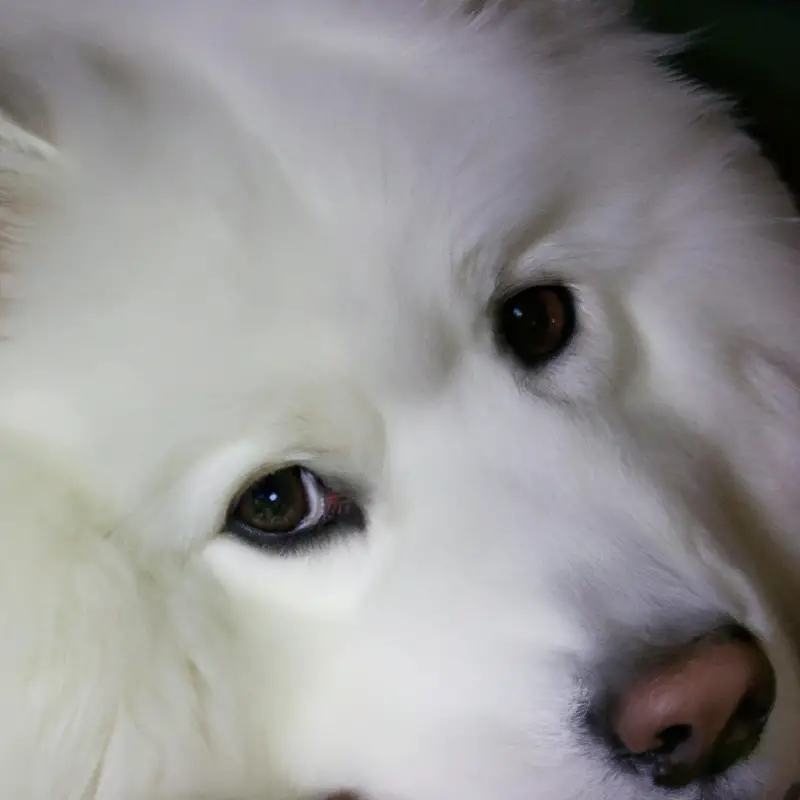
Tail and body structure of Samoyeds
Samoyeds have a distinct tail and body structure. Their tails are plumed and usually carried over their backs.
This fluffy tail is one of their defining characteristics.
Samoyeds also have a strong, muscular body with a deep chest and a straight, level back. Their legs are sturdy and well-boned, allowing them to move with grace and agility.
The combination of their beautiful tail and well-built body gives Samoyeds an elegant and majestic appearance.
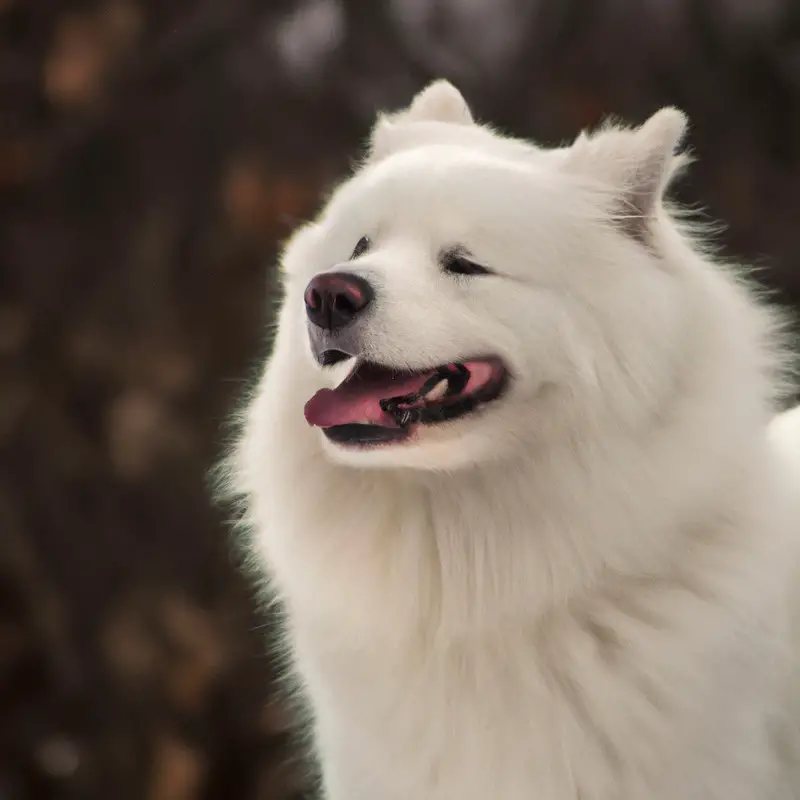
Temperament and personality traits of Samoyed dogs
Friendly and gentle nature of Samoyeds
Samoyeds are known for their friendly and gentle nature.
They have a natural inclination to be affectionate and loving towards their owners and other people.
This breed is usually very sociable and enjoys being a part of the family.
Samoyeds are great with children and are generally tolerant of them.
They also tend to get along well with other pets, including cats and smaller animals.
Their friendly and gentle nature makes them excellent companions for individuals and families alike.
Playfulness and high energy levels of Samoyeds
Samoyeds are known for their playful nature and high energy levels.
They love to engage in various activities and games, always eager to have fun.
Whether it’s playing fetch, running around in the backyard, or going for long walks, Samoyeds have a natural affinity for being active.
Their playfulness and high energy levels make them great companions for active individuals or families who enjoy spending time outdoors and participating in activities that allow Samoyeds to release their energy.
Just remember to provide them with plenty of exercise and mental stimulation to keep them happy and prevent any potential behavioral issues.
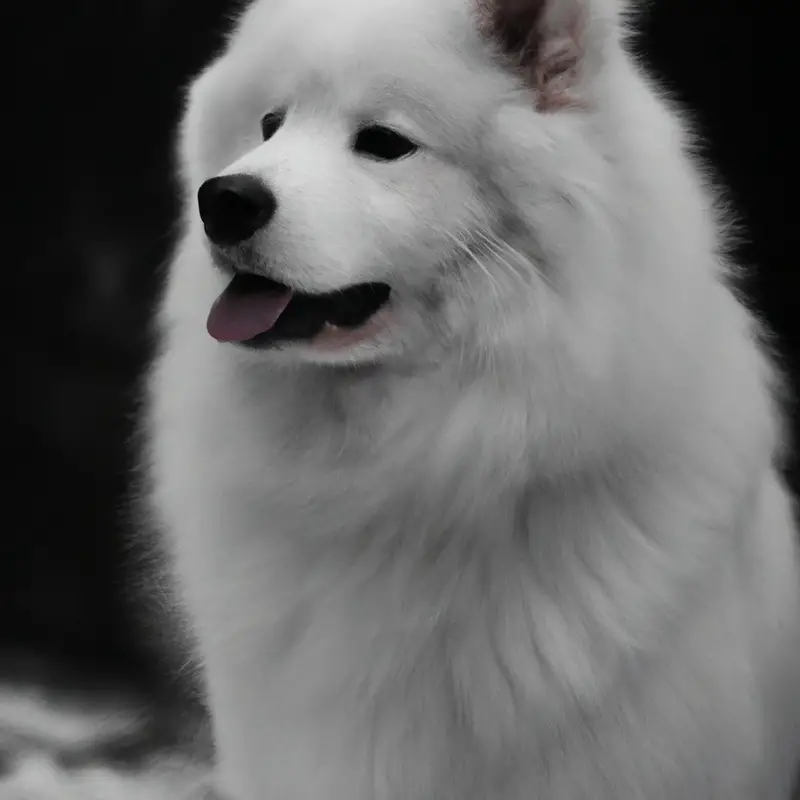
Alertness and protectiveness in Samoyeds
Samoyeds are known for their alertness and protectiveness.
They are naturally vigilant and will always keep an eye out for any potential threats or intruders.
This makes them excellent watchdogs that will sound the alarm if something seems amiss.
Additionally, Samoyeds have a strong instinct to protect their family members and will go to great lengths to ensure their safety.
Their protective nature combined with their friendly and gentle demeanor makes them a well-rounded companion for any household.
Training and exercise requirements for Samoyeds
Importance of early socialization for Samoyeds
Early socialization is crucial for Samoyeds.
It helps them develop good behavior, adapt to different environments, and become well-rounded dogs.
By exposing your Samoyed to various people, animals, and situations at a young age, you can prevent future behavior issues and ensure they grow up to be confident and friendly pets.
Positive experiences during this time will shape their overall temperament and make them more adaptable and social throughout their lives.
Basic obedience training for Samoyeds
When it comes to basic obedience training for Samoyeds, it’s important to establish clear rules and boundaries from an early age.
Start with simple commands like “sit,” “stay,” and “come” using positive reinforcement techniques.
Consistency and patience are key, as Samoyeds can be independent and stubborn at times.
Make training sessions short and fun to keep them engaged.
Socializing with other dogs and people is also crucial for their development.
Consider professional training classes to help with more advanced commands.
Remember to always be patient and consistent in your training approach.
Exercise needs and activities suitable for Samoyeds
Samoyeds are energetic dogs that require regular exercise to keep them happy and healthy. They love activities that allow them to use their natural instincts, such as walking, running, and playing fetch.
Taking them for daily walks or jogs for at least 30 minutes is essential.
Engaging them in mentally stimulating games like puzzle toys or basic obedience training can also help satisfy their exercise needs. Additionally, Samoyeds enjoy participating in activities like agility or obedience trials, which provide both physical and mental stimulation.
Remember to make exercise fun and varied to keep your Samoyed engaged and content.
Health and grooming of Samoyed dogs
Common health issues in Samoyeds
Samoyeds are generally a healthy breed, but like all dogs, they can be prone to certain health issues. Some common health problems in Samoyeds include hip dysplasia, progressive retinal atrophy, and hypothyroidism.
These conditions can be managed with proper veterinary care, regular exercise, and a balanced diet.
Regular check-ups and routine screenings can help detect and address these issues early. Additionally, providing a clean and safe environment for your Samoyed, along with regular grooming and dental care, can contribute to their overall health and well-being.
Proper grooming routine for Samoyeds
To maintain the beautiful coat of your Samoyed, a proper grooming routine is essential.
Regular brushing helps to prevent matting and keeps fur clean and free from debris.
Use a slicker brush or comb to remove tangles and loose hair.
Bathing should be done every 6-8 weeks using a gentle, dog-specific shampoo.
Trim their nails regularly to prevent overgrowth.
Pay attention to their ears and teeth, cleaning them regularly to prevent any infections.
Lastly, don’t forget to give your Samoyed lots of love and attention during grooming sessions.
Vaccinations and regular health check-ups for Samoyeds
Vaccinations and regular health check-ups are important for keeping your Samoyed happy and healthy.
Regular vaccinations protect them from common diseases like distemper, parvovirus, and rabies.
These vaccines are usually given in a series, starting when they are puppies.
In addition to vaccinations, regular health check-ups allow the vet to monitor your Samoyed’s overall health, catch any potential issues early, and provide preventive care.
It’s a good idea to follow your vet’s recommended vaccination schedule and schedule regular check-ups for your Samoyed.
Samoyeds as family pets
Compatibility of Samoyeds with children and other pets
Samoyeds are known to be excellent family dogs and generally get along well with children and other pets. Their friendly and gentle nature makes them great companions for kids, and their high energy levels mean they can keep up with active play.
Samoyeds are also generally tolerant of other animals, but proper socialization is key to ensure they get along well.
With early training and supervision, Samoyeds can be compatible and loving additions to any family or pet household.
Living conditions and space requirements for Samoyeds
Samoyeds require a spacious living environment as they are large dogs with an active nature.
They thrive in homes with large yards where they can run and play.
Daily exercise, such as brisk walks or playtime in a secure outdoor space, is vital to keep them happy and healthy.
Samoyeds also enjoy being indoors with their families and will need a comfortable area with a cozy bed.
Adequate space and a balance of indoor and outdoor activities contribute to their overall well-being.
Time commitment and responsibilities of owning a Samoyed
Owning a Samoyed requires a significant time commitment and a range of responsibilities.
Here are a few key factors to consider:
- Exercise: Samoyeds are energetic dogs that require regular exercise to keep them physically and mentally stimulated. Daily walks, playtime, and possibly additional activities like hiking or agility training are necessary to meet their exercise needs.
- Grooming: Samoyeds have a thick, double coat that requires regular grooming to keep it healthy and tangle-free. Expect to brush their fur several times a week and possibly even daily during shedding seasons. Professional grooming may also be needed.
- Training and socialization: Samoyeds thrive on training and social interaction. They are intelligent and eager to please, but also independent-minded. Consistent and positive training methods, along with early socialization, are crucial to shape their behavior and ensure they become well-rounded dogs.
- Time spent indoors: Although Samoyeds can adapt to different living environments, they are primarily social dogs that thrive on human companionship. They do not fare well if left alone for extended periods. Be prepared to spend quality time with your Samoyed, providing love, attention, and mental stimulation.
- Health care: Like all dogs, Samoyeds require routine veterinary care, including vaccinations, dental care, and preventive medications. They may also be prone to certain health issues, such as hip dysplasia and progressive retinal atrophy. Regular check-ups and prompt attention to any health concerns are essential.
Remember, owning a Samoyed is a long-term commitment.
They are loyal, loving companions that bring joy and happiness, but they do require time, effort, and dedication to ensure their well-being and happiness.
Frequently Asked Questions about Samoyed dogs
Are Samoyeds suitable for apartment living?
Samoyeds are not typically suited for apartment living due to their high energy levels and exercise needs.
These friendly and active dogs thrive in spacious environments where they have plenty of room to roam and play.
A small apartment may not provide enough space for a Samoyed to move around comfortably.
Additionally, their thick coat is better suited for colder climates, and apartments with air conditioning may not provide the ideal temperature for them.
It’s important to consider the needs of the breed and ensure they have the space and environment they require for a happy and healthy life.
Do Samoyeds shed a lot?
Samoyeds do shed a lot. Their thick, double-layered coat keeps them warm in colder climates but also means that they shed heavily.
Regular grooming, including brushing their coat at least once a week, can help manage the shedding.
Investing in a high-quality vacuum cleaner is also a good idea to keep up with the fur around your house. Despite the shedding, these fluffy dogs are known for their friendly and loving nature, making them a popular choice among dog lovers.
Can Samoyeds be left alone for long periods?
Samoyeds are extremely social dogs and they thrive on human companionship. Leaving them alone for long periods is not recommended as it can lead to separation anxiety and behavioral issues.
They are happiest when they are with their family and need regular exercise and mental stimulation.
If you need to be away for extended periods, it’s important to make arrangements for someone to spend time with your Samoyed or consider alternative solutions, like doggy daycare or hiring a dog walker.
How long do Samoyeds live on average?
Samoyeds have a relatively long lifespan compared to other dog breeds.
On average, they live between 12 to 14 years.
However, with proper care, nutrition, and regular veterinary check-ups, some Samoyeds can live even longer, reaching their late teens.
Regular exercise, a balanced diet, and maintaining a safe and loving environment are essential for ensuring their overall health and well-being.
Remember to prioritize their well-being and cherish every moment you have with them.
Final Verdict
Samoyed dogs possess a unique set of physical characteristics that make them instantly recognizable and undeniably adorable.
From their medium to large size and fluffy double coat, to their expressive facial features and characteristic curled tail, Samoyeds are truly a breed apart.
But it’s not just their looks that make them special.
Their friendly and gentle nature, playful energy, and protective instincts make them wonderful family pets.
However, owning a Samoyed does come with responsibilities, including early socialization, consistent training, and regular grooming.
Overall, Samoyeds are a delightful addition to any home, as long as you are willing to devote time, effort, and love to their well-being.

